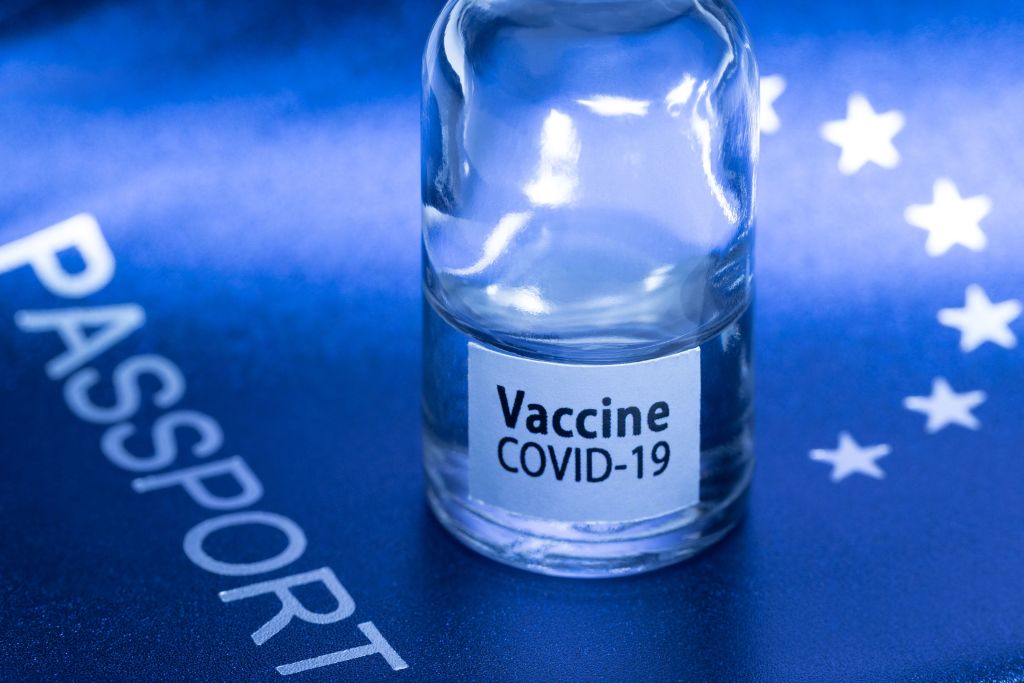After a year in which young people have lost their jobs, been denied time in the classroom and at university and not been allowed to see their friends, could they now be penalised again? Boris Johnson said we ‘have to be very careful how you handle this and don’t start a system that is discriminatory’ when vaccine passports, or ‘Covid status certification’, were raised at a briefing this week. Yet it’s hard to imagine a more grossly unfair, discriminatory system than introducing vaccine passports before young people have the opportunity to be vaccinated.
Young people have sacrificed so much for a disease that they are relatively invulnerable to. Nearly half of those people furloughed since the start of the pandemic are under the age of 24, and 88 per cent of job losses affected people 35 and under, according to research by the Institute for Employment Studies. Young people have been forced to deal with botched A-level results, ruined university experiences, poor online teaching and setbacks in education as well as mental health crises. They have put their lives on hold to protect older generations. Just remember, a 25-year-old is about 250 times less likely to die from Covid than an 85-year-old; most Covid victims are aged 60 and over.
Time and time again young people have been penalised through no fault of their own during this pandemic
This isn’t an argument against lockdowns, vaccines, or vaccine passports in general. I have happily got jabs such as yellow fever in order to travel before, and if I was offered the vaccine tomorrow, I’d be the first down to the centre with my sleeves rolled up. The potential benefits of vaccine passports for international travel are clear, and anything that stops the medical, economic, social and psychological impact of lockdowns seems a price worth paying.
However it is also fundamentally wrong if young people are effectively punished for waiting their turn. Time and time again young people have been penalised through no fault of their own during this pandemic. University students in Manchester even had a security fence erected around their halls of residence just a few months ago. Now they risk being shut out of society while being told to wait patiently in the queue. At the very least, if the plan is to wait until all adults have been offered a vaccine until passports are rolled out, where are the words of reassurance that young people won’t be unfairly punished?
Much of the debate at the moment around vaccine passports centres around the question of civil liberties, racial disparities in the vaccine uptake, or how the system will be implemented practically. The only senior government source who has mentioned young people has said that Covid checks at pubs could ‘nudge [them] to get the vaccine’, but young people hardly need a push to go to the pub; the vast majority are desperate for the vaccine, they just haven’t been offered it yet. Furthermore, younger people make up the majority of hospitality staff: so does this mean they can’t go to the pub, but they can work there?
One potential way to avoid creating large-scale inequality is, as Boris Johnson hinted on Monday, to offer testing as an alternative to Covid passports, so that it’s not just pensioners able to party in Ibiza or sun themselves in the Seychelles. However, the cost of two private tests (which are currently required for anyone returning to the UK right now) is between £160 and £250, which means that young people could be financially disadvantaged. That, plus the risk of facing other restrictions or being forced to quarantine for any countries not on the ‘green’ list, will be enough to put many young people off.
Interestingly, not all countries are following the UK’s policy of vaccinating the most vulnerable first either. For example, Indonesia is prioritising vaccinating younger, working-age people, as they are ‘more active, more social and travel more’, and so in theory this strategy should ‘decrease community transmission faster than vaccinating older individuals’. It will also help to jumpstart the economy, as young people are likely to spend more, meaning businesses can resume more quickly.
There are of course arguments for and against both strategies, and we shouldn’t undermine the immense success of the UK vaccination programme. However, the reality is that in the UK most young people will have to wait until July for their first dose, and with a potential 12 week window before their second one, they may not be fully vaccinated until October. They therefore face the prospect of months and months of more restrictions. And what about other groups who can’t have the vaccine (for example, those with severe allergies or those who are pregnant or breastfeeding)?
The government should continue to consider its options, but it should also bear in mind the huge intergenerational inequality in society. There is already plenty of resentment behind the ‘anti-boomer’ narrative. This will only be exacerbated by a two-tier system, or as David Lammy put it, a ‘social apartheid’ that is distinctly un-British. The roadmap out of lockdown has given young people much-needed hope for normality. Snatching that away by imposing vaccine passports too soon may add salt to an already very deep wound.






Comments